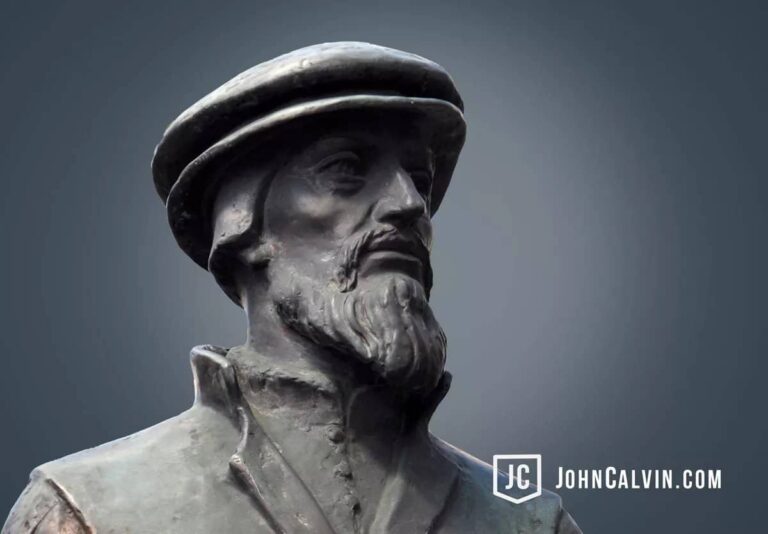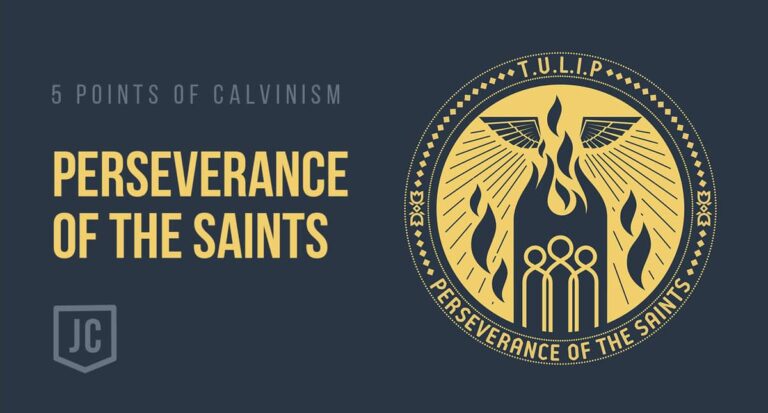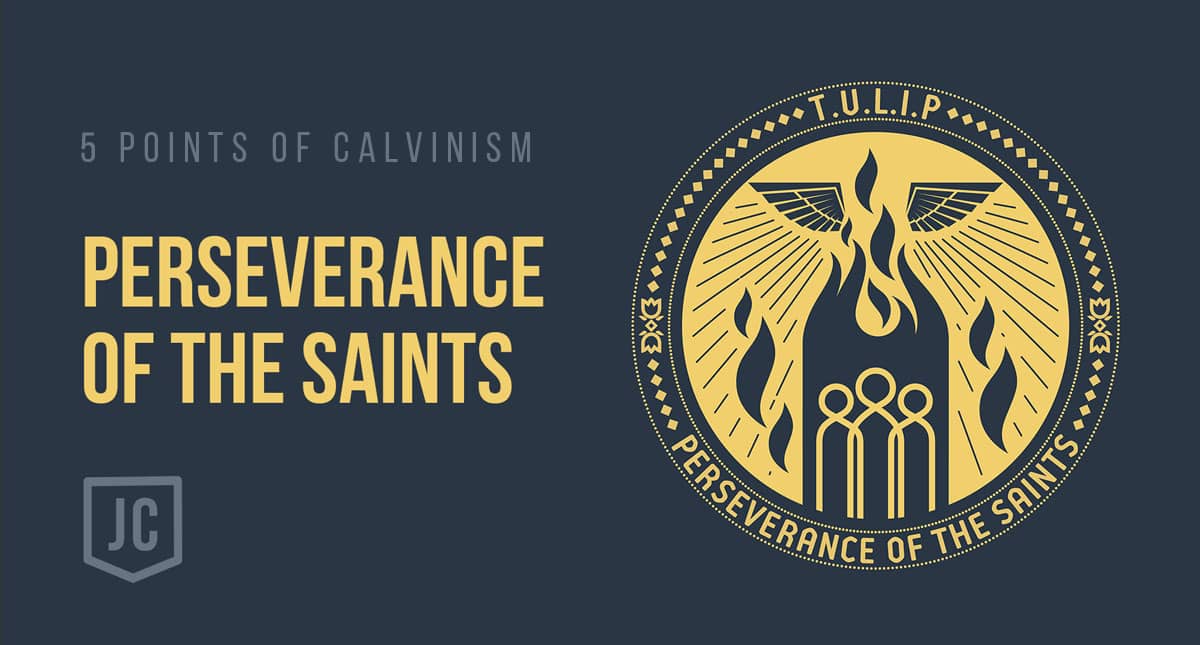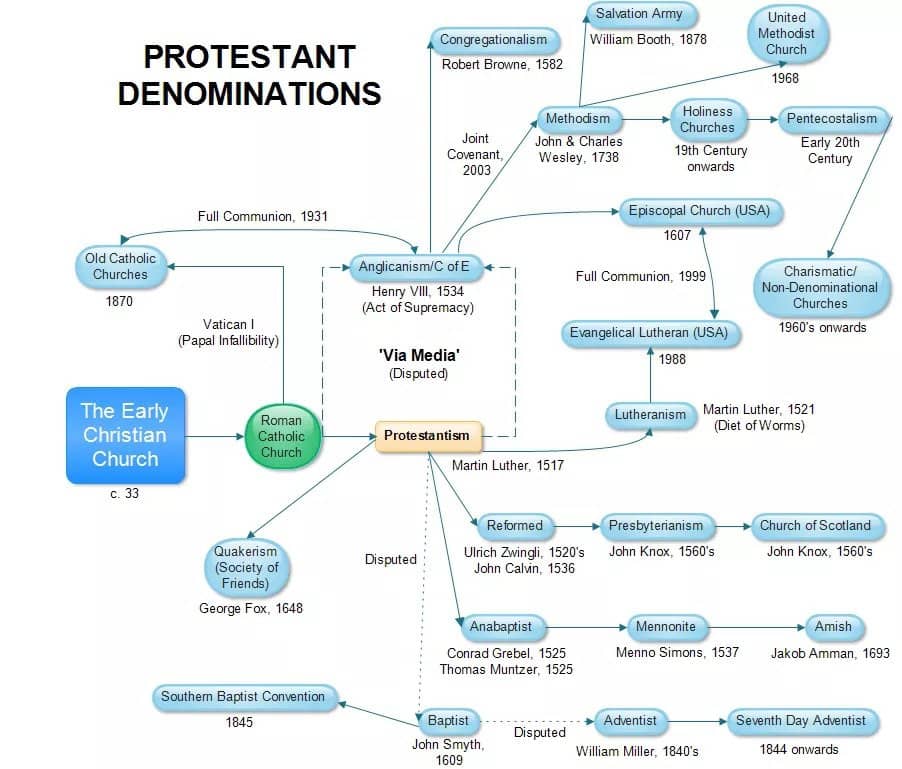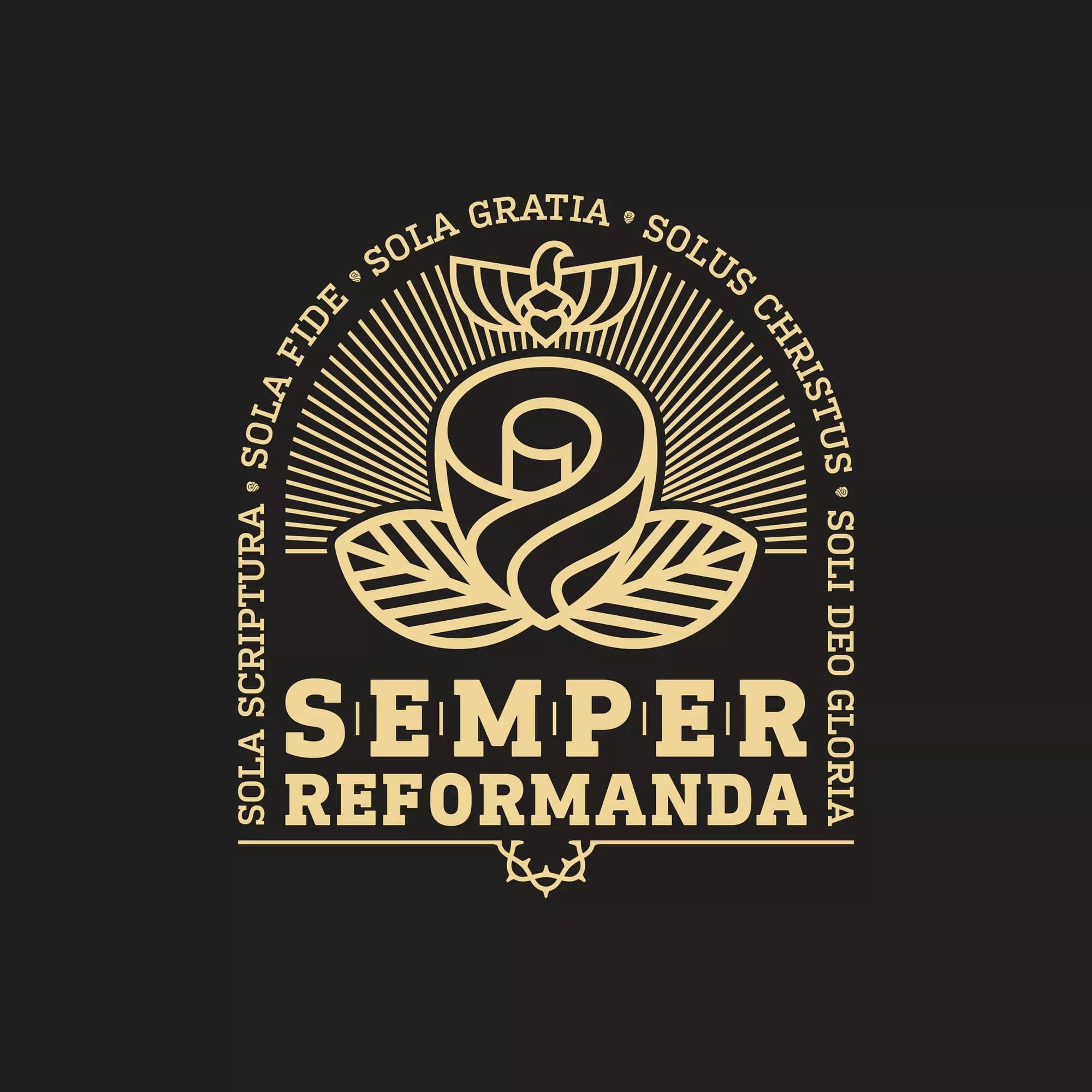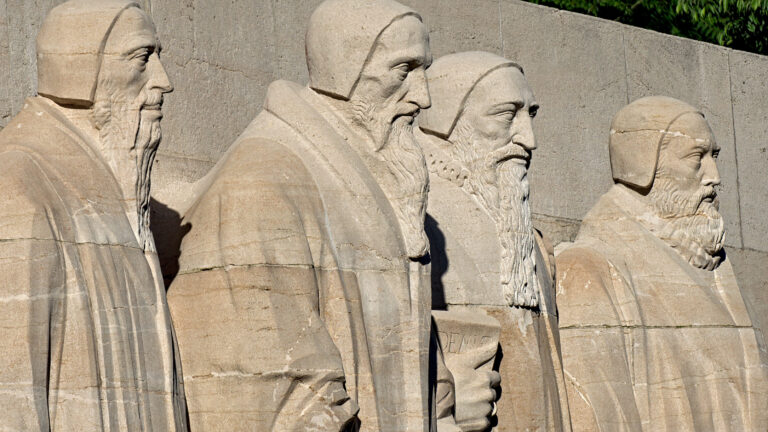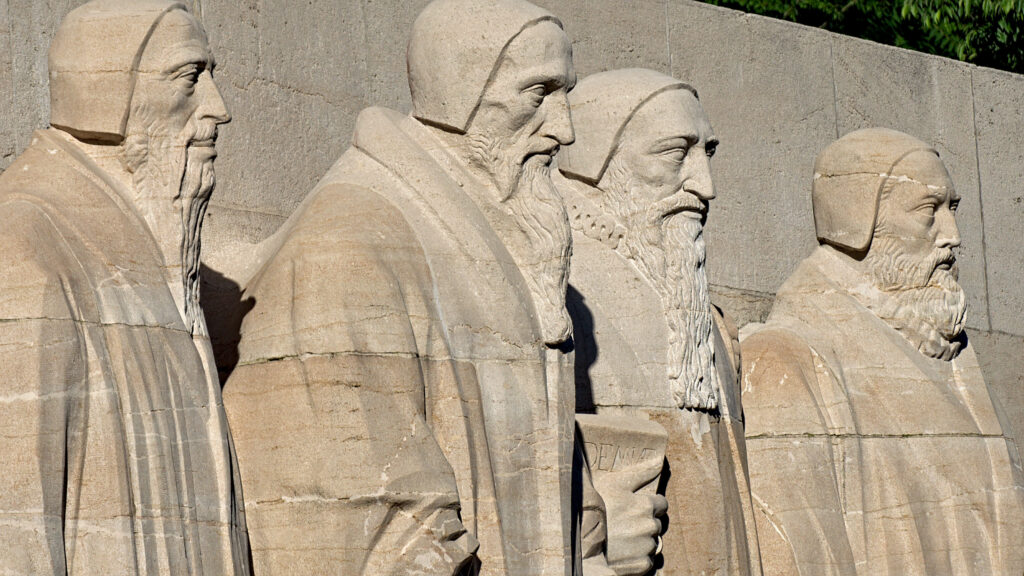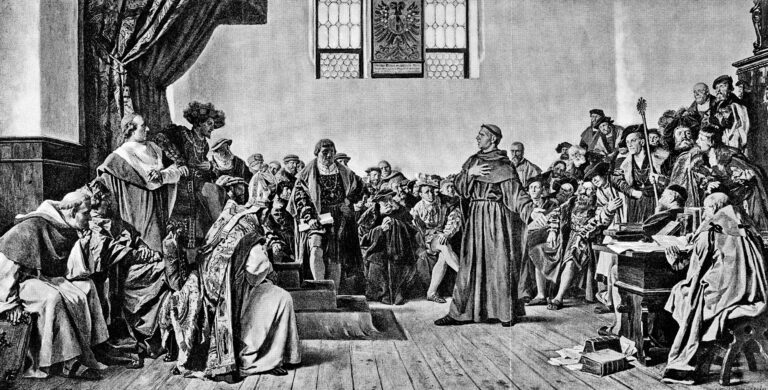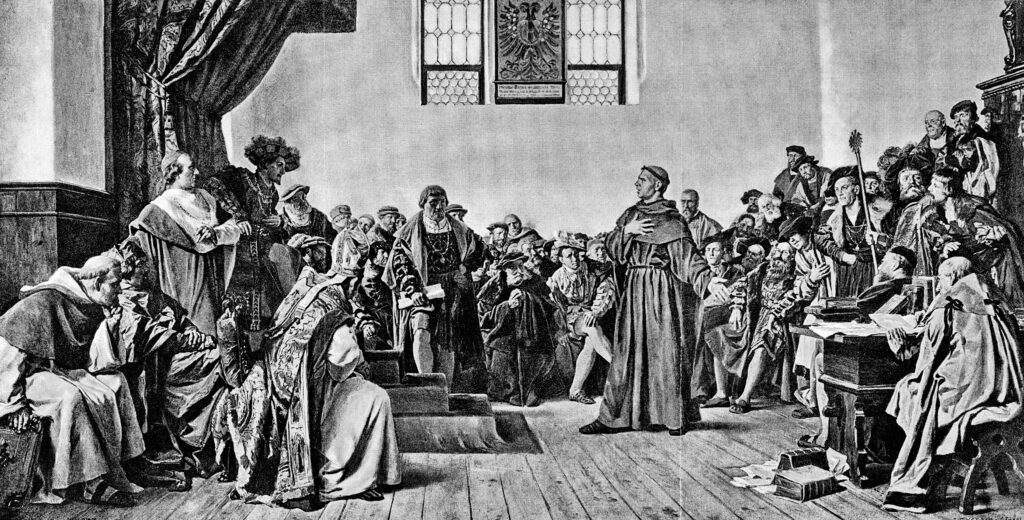What Did John Calvin and Martin Luther Have in Common?
What did John Calvin and Martin Luther Have in Common: Shared Convictions of John Calvin and Martin Luther
The Reformation era in the 16th century stands as a pivotal moment in history, characterized by sweeping change and bold reform movements. At the forefront of this transformative period were two influential figures: John Calvin, a French theologian, and Martin Luther, a German monk. The Reformation, with its seismic shifts and radical reforms, owes much to the influential roles these two remarkable individuals played.
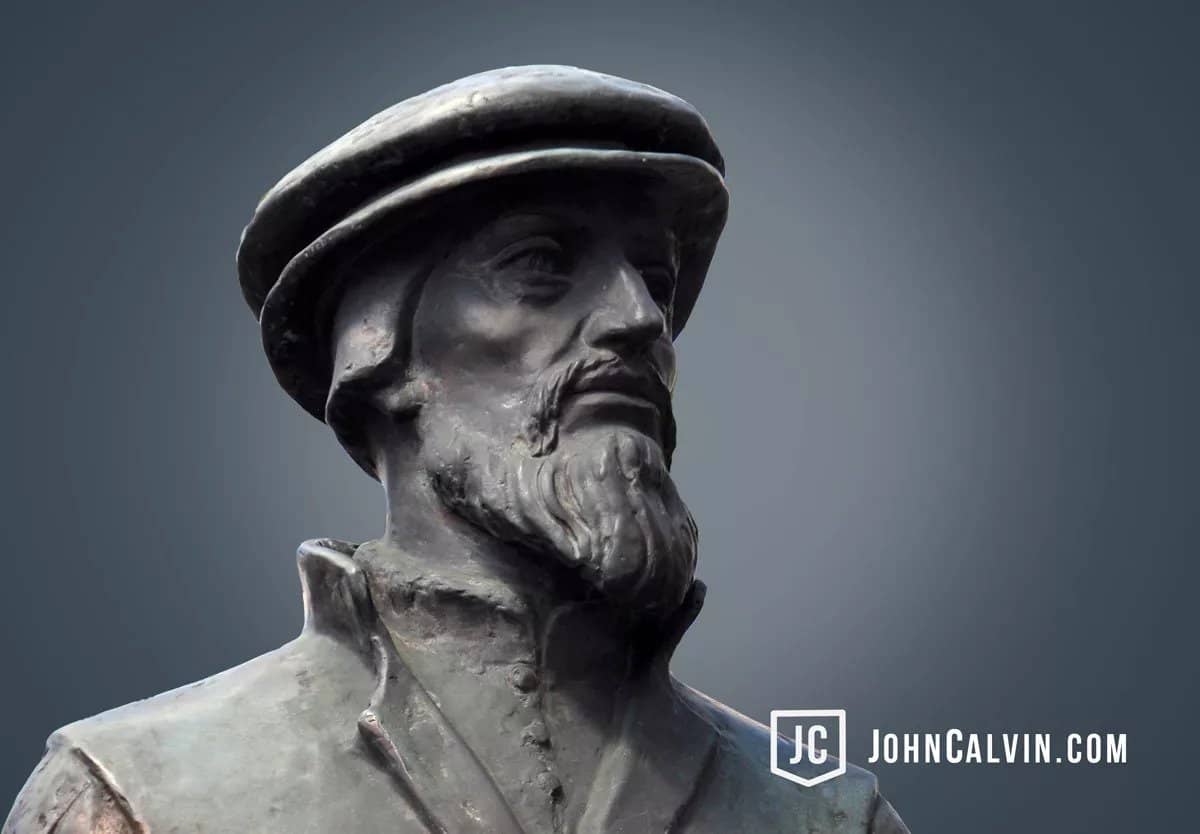
These two luminaries, separated by time and space, played pivotal roles in shaping the Protestant Reformation. Luther, with his Ninety-Five Theses, boldly challenged the corrupt practices of the Catholic Church, igniting a fire of dissent that spread across Europe. While Calvin expanded upon Luther’s ideas, meticulously developing a comprehensive theological system that shaped the foundation of the Protestant faith. While they certainly possessed distinct perspectives and contributions, their shared convictions set them apart and shaped the course of history.
What did John Calvin and Martin Luther have in common? The quest for an answer reveals a powerful unity of purpose and an unwavering commitment to core principles. Their shared convictions encompassed the authority of Scripture, the rejection of sacramental practices, the belief in God’s sovereignty, and their perspectives on the relationship between church and state. Evidently, these commonalities formed the bedrock of their enduring legacy and the lasting impact they had on the Reformation movement.
In this article, we will touch on this profound bond between Calvin and Luther, exploring the power and impact of their common beliefs. Join us as we delve deeper into the similarities and divergences that define the legacies of these extraordinary figures.
What did John Calvin and Martin Luther have in common: The Foundations of Faith
The foundations of faith are often the bedrock upon which religious movements and theological systems are built. In the case of Martin Luther and John Calvin, their shared convictions in matters of faith formed a formidable cornerstone.
The Authority of Scripture
At the very core of their shared convictions lay an unwavering commitment to the authority of Scripture. For both Calvin and Luther, the concept of sola scriptura resounded with resolute clarity. It was an unyielding belief that the Bible, as the inspired Word of God, held supreme authority in matters of faith and practice. Moreover, their embrace of this principle unleashed a transformative force that challenged the prevailing norms of their time.
The power and significance of their unwavering belief in sola scriptura cannot be understated. In a time when access to Scripture was limited, Calvin and Luther undertook the arduous task of translating the Scriptures into the vernacular languages. Even more so, they ensured that the masses could directly access and interpret the Word of God. By doing so, they democratized religious knowledge and empowered individuals to cultivate a personal relationship with their Creator. They understood that providing individuals direct access to God’s Word ignites personal faith and empowers believers with divine truth.
Catholic Sacramental Practices vs Justification by Faith Alone
Another area where Calvin and Luther found common ground was in their rejection of Catholic sacramental practices. Both reformers vehemently critiqued the notion of indulgences and denounced the idea that human effort could secure salvation.
Instead, they emphasized the centrality of Christian faith in Jesus, and God’s grace as the only means of salvation. Their rallying cry of justification by faith alone challenged the religious establishment and emphasized the individual’s personal relationship with God.
What did John Calvin and Martin Luther have in common: The Sovereignty of God
In the realm of theology, few concepts carry as much weight as the sovereignty of God. It is a belief that transcends denominational boundaries and has profound implications for one’s understanding of divine power and human agency.
Sovereignty of God
Calvin and Luther shared a deep and unshakable belief in the sovereignty of God. In this shared conviction, they found common ground that transcended theological differences. They recognized God’s absolute sovereignty and grace by acknowledging salvation as a gift bestowed according to His divine will.
Understanding of Divine Providence
Their shared belief in God’s sovereignty and grace had far-reaching implications for theology and religious practices. It instilled a sense of humility and dependence on God, as individuals recognized their limited role in the salvation process.
Further, it reshaped the concept of divine providence, highlighting the hand of God in every aspect of life. It impelled believers to pursue a genuine and personal relationship with God, as His sovereignty demanded unwavering trust and obedience. Through this shared conviction, Calvin and Luther unleashed a powerful theological force that redefined the relationship between God and humanity.
What did John Calvin and Martin Luther have in common: Church and State
The relationship between church and state has been a topic of ongoing debate throughout history. For Calvin and Luther, their perspectives on this intricate relationship overlap despite their divergent stances.
Religious Freedom and Separation of Powers
In their views on the relationship between church and state, Calvin and Luther found commonality and yet expressed nuanced differences. Luther’s concept of the “Two Kingdoms” delineated the spheres of authority for the secular and religious realms. Thus, He advocated for the independence of each sphere while acknowledging their mutual interdependence. On the other hand, Calvin’s notion of Christian church discipline emphasized the church’s moral accountability and authority in society.
Individual Conscience and Religious Tolerance
Their ideas on the role of the church in governing society had a profound impact on the development of religious freedom and the separation of powers. Indeed, Calvin and Luther paved the way for modern democratic principles by challenging the notion of absolute religious authority and advocating for the individual’s conscience. They recognized the importance of religious tolerance and individual freedom of belief, laying the groundwork for societies that respect diverse faith traditions.
What did John Calvin and Martin Luther have in common: Legacy and Impact
The enduring influence of Calvin and Luther’s shared convictions can be felt to this day. They continue to shape religious thought and practice, far from confining their ideas to the pages of history. Evidently, the doctrines they espoused laid the foundation for various Protestant denominations and continue to inspire believers around the world. Their shared convictions lie not only in their historical significance but also in their relevance to contemporary society.
The spread of Calvin and Luther’s ideas beyond their lifetimes is a testament to their enduring impact. In fact, their writings, sermons, and theological works continue to be studied, debated, and applied in theological institutions and religious communities. The Reformation they ignited was not merely a momentary disruption but a catalyst for lasting change.
Their shared convictions reshaped religious thought, challenging long-held traditions and doctrines. Further, they instilled in believers a sense of personal responsibility for their faith and relationship with God. Armed with the knowledge of Scripture and a belief in God’s sovereignty, one becomes an active participant in their own spiritual journey.
Moreover, the influence of Calvin and Luther’s convictions reached far beyond the realm of theology. Their ideas played a pivotal role in the formation of modern democratic principles. The separation of church and state, the protection of individual conscience, and the recognition of religious diversity owe a debt to their teachings. Indeed, by championing the rights of the individual and challenging oppressive religious structures, they paved the way for societies that value religious freedom and respect the autonomy of believers.
Conclusion
The shared convictions of John Calvin and Martin Luther hold immense power and continue to shape our understanding of faith, theology, and society. Both Calvin and Luther shared an unwavering commitment to challenging the status quo of their era, which was marked by the powerful influence of the Roman Catholic Church. Their tireless pursuit of truth, coupled with their firm belief in the sovereignty of God, led them on parallel paths of religious revolution. Armed with their pen and voice, they spoke out against corruption, dogma, and the misuse of authority within the church.
At the core of their theological alignment lay the doctrine of justification by faith alone, a concept that sparked a monumental upheaval in the religious landscape. They asserted that salvation could not be earned through human efforts or indulgences, but rather through faith in Jesus Christ. This shared conviction formed the bedrock of their teachings and galvanized a movement that forever changed the Christian Community.
The commonalities between the two are profound and multifaceted. Even so, their resolute commitment to truth, their fervent pursuit of religious reform, and their shared theological tenets united them in a mission that transcended time and place.
As we reflect on their shared convictions, the challenge that Calvin and Luther present to us today is to recognize the power of the Gospel of Jesus Christ. It alone has the power to change our hearts and ultimately the way we live our lives. Their shared beliefs are those rooted in the truth of the Bible and lead people to faith in Jesus and repentance of our sins. The Scriptures say “Whoever believes in the Son has eternal life. Whoever does not obey the Son shall not see life, but the wrath of God remains on him.” John 3:36 Both Luther and Calvin would be steadfastly united in this. They lived it every day and spent their lives declaring it to the world.
